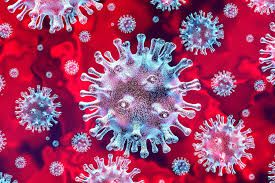
Seventy-eight percent of people diagnosed with COVID-19 showed evidence of heart damage caused by the disease weeks after they have recovered, according to a study published Monday by JAMA Cardiology.
Of 100 participants in the study, 78 had evidence of heart damage on magnetic resonance imaging, or MRI, according to the researchers.
None of the 100 patients included in the analysis had experienced heart symptoms related to the new coronavirus and "were mostly healthy ... prior to their illness," the researchers said.
"The patients and ourselves were both surprised by the intensity and prevalence of these findings, and that they were still very pronounced even though the original illness had been by then already a few weeks away," study co-author Dr. Valentina Puntmann told UPI.
"We found evidence of ongoing inflammation within the heart muscle, as well as of the heart's lining in a considerable majority of patients," said Puntmann, a consultant physician, cardiologist and clinical pharmacologist at University Hospital Frankfurt in Germany.
The researchers said the MRI findings were consistent with two potentially serious heart conditions: myocarditis and pericarditis, according to the researchers.
Myocarditis is inflammation of the heart muscle, and it can reduce the heart's ability to pump, potentially causing irregular heartbeats, Puntmann said.
Pericarditis causes inflammation of the protective tissues surrounding the heart and can cause pain, she said.
The 100 study participants, 45 to 53 years old, had recovered from COVID-19. Participants' underwent MRI evaluation two to three months after being diagnosed with the virus, researchers said.
Sixty percent of the participants had evidence of ongoing heart inflammation on their MRIs that was independent of preexisting conditions or the course of their COVID-19 infection, according to the researchers.
Two-thirds of the participants recovered from COVID-19 at home, and 18% never had symptoms of the virus, the researchers said. Roughly half had mild to moderate symptoms of the coronavirus, they said.
"While we do not yet have the direct evidence for [long-term] consequences yet, such as the development of heart failure, which can be directly attributed to COVID-19, it is quite possible that in a few years this burden will be enormous based on what we know from other viral conditions," Puntmann said.
Although the participants in Puntmann's study recovered from the virus, a separate analysis, also published Monday by JAMA Cardiology found evidence of infection in the hearts of 16 of 39 -- or 41% -- patients who died from the disease.
The findings were made after autopsies of the patients, who were between 78 and 89 years old.
"[COVID-19] can infect the heart and, in severe cases, the virus seems to replicate within it," study co-author Dirk Westermann, a cardiologist at University Medical Center Hamburg-Eppendorf, also in Germany, told UPI.
"We need long-term follow-up studies of COVID-19 survivors to see whether [the virus] impacts cardiac function over the long-term," he said.
SOURCE: UPI
